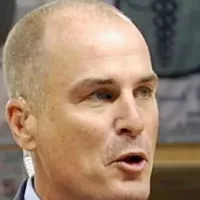Personal finance is the process of managing one's financial resources, including budgeting, saving, and spending, while considering potential risks and future life events. It involves making informed decisions about how to allocate income, plan for expenses, and invest savings to achieve financial goals. Effective personal finance management requires understanding financial concepts such as budgeting, saving, investing, debt management, and insurance. It also involves considering factors like inflation, interest rates, and investment risks. By carefully planning and managing finances, individuals and families can achieve financial security and stability.
1920: Early Research in Personal Finance
In 1920, Hazel Kyrk's dissertation at the University of Chicago pioneered the fields of consumer economics and family economics, laying the groundwork for future research in personal finance.
1947: Herbert A. Simon's Theory of Bounded Rationality
In 1947, Nobel laureate Herbert A. Simon proposed that individuals don't always make optimal financial choices due to limited resources and personal biases.
1984: Establishment of AFCPE
The Association for Financial Counseling and Planning Education (AFCPE) was founded in 1984 at Iowa State University, marking a key development in the professionalization of personal finance.
1985: Establishment of AFS
The Academy of Financial Services (AFS) was established in 1985, further solidifying the academic and professional growth of the personal finance field.
1990: Growth of Personal Finance Programs
Beginning in the 1990s, universities like Brigham Young University, Iowa State University, and San Francisco State University started offering undergraduate and graduate programs in personal finance, contributing to the field's expansion.
2008: Increased Focus on Financial Literacy
Concerns about consumer financial capability grew in the early 2000s, leading to various financial literacy programs. After the 2008 financial crisis, the need for standardized curriculum was highlighted, and the President's Advisory Council on Financial Capability was established.
2008: The 2008 Financial Crisis
The 2008 financial crisis served as a real-world example of how human behavior can impact markets, influencing Dan Ariely's work and highlighting the complexities of economic decision-making.
2009: Dan Ariely and the 2008 Financial Crisis
In 2009, Dan Ariely analyzed the 2008 financial crisis, arguing that it demonstrated how human irrationality can influence markets and that markets may not self-correct as efficiently as previously thought.
2009: Studies on Financial Education Effectiveness
In 2009, conflicting studies emerged regarding the effectiveness of financial literacy education. While some research, like that by Bell, Gorin, and Hogarth, indicated positive effects, other studies found no significant differences in saving behaviors based on state mandates.
2015: Financial Education in Schools
By 2015, 17 US states mandated high school personal finance education. While some research suggests positive impacts like increased savings habits, other studies question the effectiveness of these mandates.
Mentioned in this timeline

San Francisco is a major commercial financial and cultural hub...

Chicago is the most populous city in Illinois and the...
Iowa is a state in the U S Midwest bordered...
Trending

54 minutes ago Sloane Stephens and Jozy Altidore Announce Divorce After Four Years of Marriage

55 minutes ago Jay Bilas Praises UNC; Dixon Struggles; Davis's Job May Be Safe

55 minutes ago Timothée Chalamet and Matthew McConaughey Reunite, Discuss 'Interstellar' and Share Memories.

2 hours ago Cameron Boozer: Duke Forward, Elite Numbers, and Wooden Award Favorite

2 hours ago Josiah Harrell's Sensational UFC Debut After Rare Brain Disease Diagnosis: A Houston Story

2 hours ago Rajah Caruth shines at JR Motorsports; Mayer takes pole; Mears avoids crash.
Popular

Jesse Jackson is an American civil rights activist politician and...

Barack Obama the th U S President - was the...

Bernie Sanders is a prominent American politician currently serving as...

Ken Paxton is an American politician and lawyer serving as...

Michael Joseph Jackson the King of Pop was a highly...
Randall Adam Fine is an American politician a Republican who...
